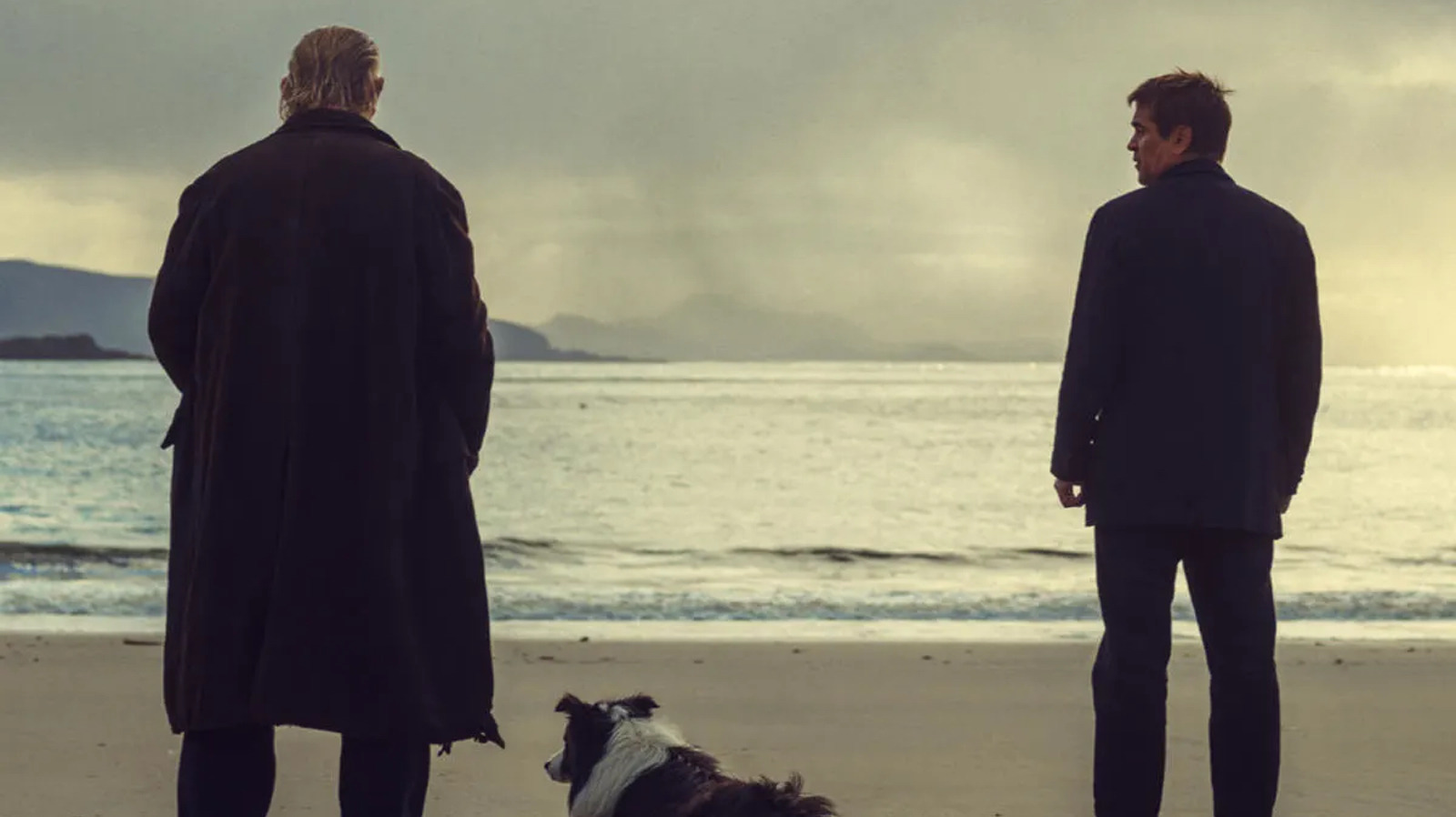The Banshees of Inisherin
The Banshees of Inisherin, 2022, 4 ½ stars
With friends like these …
Banshees screams Irish metaphors
Exclusive to MeierMovies, October 11, 2022
“A good friend is like a four-leaf clover: hard to find and lucky to have,” says an Irish proverb.
In writer-director Martin McDonagh’s new allegorical film, The Banshees of Inisherin, crusty old Colm doesn’t necessarily disagree with that nugget of his nation’s wisdom. He just happens to think his clover – the one he has shared for years with his mate Pádraic – has an expiration date. And that date is today.
Pressing Colm for a reason, Pádraic gets little response other than a brusque “I just don’t like you no more.” As the former friends’ standoff intensifies, Colm elaborates on that cursory explanation in an increasingly frustrating yet profound manner. Indeed, the film’s quiet profundity makes it the best, if oddest, commentary on friendship one is likely to see at the cinema this year. It also makes it, at least so far, this critic’s best overall film experience of 2022.
This brooding tragi-comedy of lost human companionship has a lot to say about animals too. In fact, if Banshees had premiered at Cannes instead of Venice, Jenny the donkey likely would have taken home on her back the Palm Dog Award, which the festival gives to the year’s top animal performer. Yet it’s not just Pádraic’s beloved miniature donkey that is featured prominently; it’s a variety of other barnyard characters, plus Colm’s dog, who are all elevated to the stature of supporting players, with a touching respect paid to their place in the world. This is the type of casting diversity I can support.
Nevertheless, it’s still the human actors one best remembers, and the principal four are stellar. Colin Farrell, as Pádraic, took home the top honor at Venice last month and will likely be nominated for best lead actor at the Oscars, while the equally revelatory Brendan Gleeson, as Colm, could see a nom for supporting actor. Astonishingly, neither man has ever received an Oscar nomination. And Kerry Condon (Three Billboards Outside Ebbing, Missouri; Avengers films), as Pádraic’s sister, and Barry Keoghan (Dunkirk, The Killing of a Sacred Deer), as the village’s kindhearted dolt, flesh out one of the best ensembles of the year. (Keoghan’s character’s lot in life is particularly heartbreaking, thanks to great writing and the actor’s quirky charisma, though some of his speech is a bit garbled.) And perhaps more important to the film’s integrity, realism and sociopolitical observations, all four actors are Irish and the movie was shot there.
Banshees is being billed as a dark comedy, but it isn’t really one, at least not in the vein of McDonagh’s In Bruges. Tonally, it has more in common with the director’s aforementioned Three Billboards, though it’s better than both movies. Still, there are moments of mirth, both by design and because sometimes life, with its disappointments and tragedies, leaves one with no choice but to laugh. And then there are times, as with Colm, when you just want to be left the feck alone.
Though this strange plea for isolation drives the conflict between the two friends, Banshees is ultimately a movie about Ireland: its bleak beauty, its loneliness, its people and its violence. Set against the backdrop of the Irish Civil War in 1923, Banshees displays the nation’s (and Colm’s) ugly habit of cutting off their fingers to spite their hand.
© 2022 MeierMovies, LLC
For more information on this movie, visit IMDB and Wikipedia.
